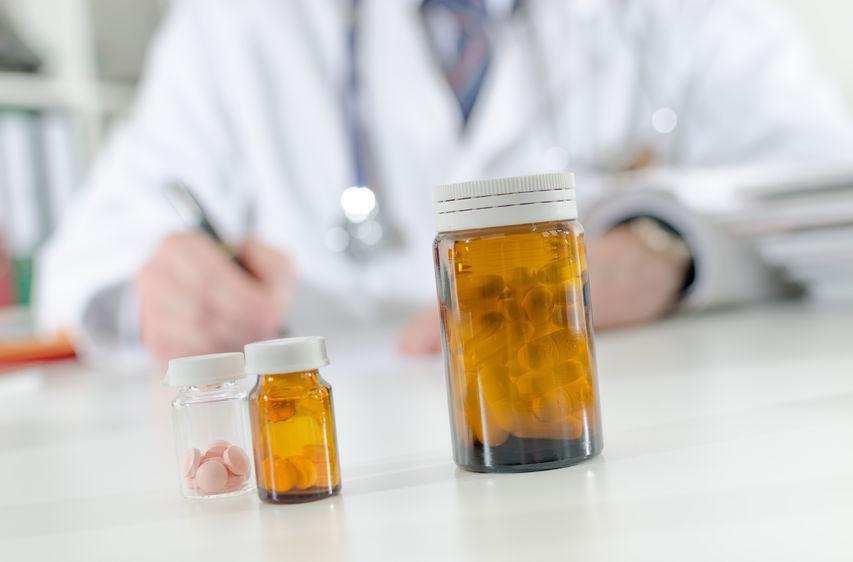Doctor’s Order Not a Defense in Drugged Driving Charge
September 28, 2018 | Category: DUI Accidents | ShareThe Governors Highway Safety Association (GHSA) reported in August 2017 that, for the first time, statistics show that drivers killed in crashes are more likely to be on drugs than drunk. In 2015, 43 percent of drivers tested in fatal crashes had used a legal or illegal drug, while 37 percent tested above the legal limit for alcohol. More than a third of drivers who tested positive for drugs had used marijuana, and more than 9 percent had taken amphetamines.
 "As drunken driving has declined, drugged driving has increased dramatically, and many of today's impaired drivers are combining two or more substances," said Ralph S. Blackman, president and CEO of the Foundation for Advancing Alcohol Responsibility, a nonprofit founded and funded by a group of distillers.
"As drunken driving has declined, drugged driving has increased dramatically, and many of today's impaired drivers are combining two or more substances," said Ralph S. Blackman, president and CEO of the Foundation for Advancing Alcohol Responsibility, a nonprofit founded and funded by a group of distillers.
Experts say whether it is medicinal marijuana, legally prescribed muscle relaxers, or any other drug, or combination thereof, it is just as illegal as driving drunk. A doctor’s order is not a defense in a drugged driving charge.
The Alcohol and Drug Foundation says that even in low doses, drugs can significantly reduce driving skills.
- Cannabis can cause a driver to drive too slowly and make him/her have difficulty staying awake or within designated lanes when driving.
- Amphetamines and ecstasy can lead to speeding or erratic driving, as well as reduced vision while driving.
- Prescription medication labels should be read, and understood, prior to taking the medication. Some drugs make the patient drowsy, aggressive, dizzy, nauseous, light-headed or shaky. Any of these symptoms can make it dangerous to drive.
The AAA Foundation said, “The effect of alcohol on crash risk has been well studied. Today, experts rely on proven measurement techniques to assess alcohol levels and have extensively examined how alcohol affects driving behavior. Research and data collection on drugs, other than alcohol, is not as far advanced, in part because of the sheer number of available drugs, whether prescription, over-the-counter, or recreational, as well as the myriad potential interaction effects when multiple drugs are used.”
According to the AAA Foundation, available research-based evidence on effective countermeasures for drug-impaired driving is just beginning. Two research briefs, provided by the foundation, describe a project which solicited input from U.S. subject-matter experts to see whether the current alcohol-impaired driving countermeasures could be adapted.
The researchers grouped the project outcomes into three categories of countermeasures: enforcement-related countermeasures, legal-based and policy-based countermeasures, and behavioral and educational interventions. The outcome of the project showed that enforcement activities garner better outcomes when used in conjunction with media publicity. The researchers urge advocates, legal and safety professionals, and legislators to consider a broad array of approaches and to evaluate the effectiveness of each countermeasure.
“If you or a loved one has been injured in a vehicle accident caused by a drugged, or drunk, driver, please contact our experienced team of attorneys at Spivey Law Firm, Personal Injury Attorneys, P.A. We are here to assist you and are available 24/7,” said Fort Myers DUI Accident Attorney, Randal Spivey.
Hurt By Drunk Driver Attorney, Randall L. Spivey is a Board Certified Trial Attorney – the highest recognition for competence bestowed by the Florida Bar and a distinction earned by just one (1%) percent of Florida attorneys. He has handled over 2,000 personal injury and wrongful death cases throughout Florida. For a free and confidential consultation to discuss your legal rights, contact the Spivey Law Firm, Personal Injury Attorneys, P.A., in Lee County at 239.337.7483 or toll free at 1.888.477.4839,or by email to Randall@SpiveyLaw.com. Visit SpiveyLaw.com for more information. You can contact Spivey Law Firm, Personal Injury Attorneys, P.A.in Charlotte County at 941.764.7748 and in Collier County 239.793.7748.

